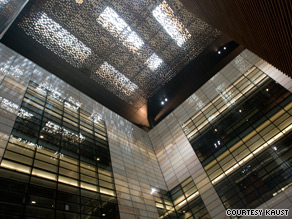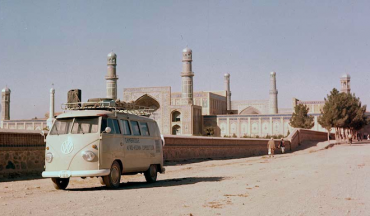 Bahrain government supports initiatives to bring business back to the families. Defying globalization and thinking locally? Explore what’s happening in this Middle East island kingdom.
Bahrain government supports initiatives to bring business back to the families. Defying globalization and thinking locally? Explore what’s happening in this Middle East island kingdom.
Mohammed Jaffar is a 19-year-old street vendor in Muharraq, Bahrain, who sells a variety of locally grown greens and fruits. He is made popular among customers by local eggs produced by a reputable breeder in Karranah village in the north of the country.
Fifty-year-old Mohammed Salim, similarly raises chickens at his home to ensure a daily supply of eggs.
Jaffar and Salim are part of the new age of Bahraini families who are increasingly running their businesses in their own unique ways. Despite being pinched by inflation and then the downturn, this new breed of entrepreneurs is popping up in different pockets of the country. Their mission is to be self-reliant.
“These eggs are cheap and taste better. In these times of inflation we need to cut corners to support families,” Jaffar says.
Salim tells The Media Line, “I have never shopped for eggs from the supermarket, as the quality produced at my home is much better than what is sold outside at higher price. My family eats healthy and I take good care of my chickens who give me three eggs a day.”
Made at Home Cottage Industry
Several families and households in the Kingdom are slowly yet steadily shifting to home production. From pickles to perfumes, wood products to weaving, they are the ‘Made at Home’ entrepreneurs. Most of them are amateurs foraying into the trading market with no experience but a guaranteed return.
And it’s no longer just a man’s business, as a growing number of women are becoming indoor sellers offering the latest goods brought from the neighboring oil rich Saudi Arabia, Dubai and Kuwait. These women travel on their own to foreign countries to buy bulk products on wholesale price.
The home business trade was popular in the sixties and seventies, but gradually faded in the eighties and nineties. Yet one determined lady who continues to carry on the tradition is Umtaha. She is the sole breadwinner for her family, selling clothes and homemade perfumes at special gatherings organized by women in their households.
“It’s great fun to sell your stuff to the sellers. I have fixed customers who could pay cash, trade with other products or pay installments at the end of the month,” says an excited Umtaha, whose life has changed after her home selling venture.
Beats inflation
One common factor that has motivated Umtaha, Jaffar, Salim, as well as several others who follow their footsteps, is high inflation. With the economic slowdown from the global meltdown, one sector that continues to show encouraging signs is family and home business, as people are able to churn out products in a tax-free Bahrain market, which officials say has ‘contained’ inflationary dangers.
But Central Bank of Bahrain (CBB) Governor, Rasheed Al Maraj believes the Kingdom is not in danger of the negative impacts of inflation. “Unlike other countries where inflation levels touched double digit figures, Bahrain inflation levels were well under control. We do not see any risk of inflation at this stage,” Al Maraj told The Media Line.
Bahrain’s annual inflation stood at 1.1 per cent last year, from its peak of 6.3% in 2008. CBB is the single regulator for the financial services sector.
With family business on the rise in Bahrain, the government is working hard to support this model and like any other Gulf Cooperation Council (GCC) country it has several social programs to help needy families. But the monthly financial aid, according to some observers, has made these families with limited income, sluggish and following the crisis they are now demanding solutions for their financial problems.
Officials say there are over 12,000 needy families and an expected 1,500 more who survive on a monthly assistance of $400 or less from the Ministry of Social Development. They include mainly widows, ill people, the elderly, the handicapped, divorcees and children who cannot take up jobs. The ministry provides training for them to start their own businesses.
The Productive Families Project is one such initiative started in the seventies that has covered hundreds of Bahraini families who sell their hand-made items, following the practice of the ancient Dilmon civilization.
According to Jasim Hussain, a lawmaker and economist, traditional businesses have failed in marketing their products on the Internet.
“These businesses operate at low cost and fail to compete in the market,” Hussain told The Media Line. “The big picture here is to improve the manufacturing sector… We need to move from an oil dependent to a productive economy, which can expect between 4 to 6% growth and generate employment.”
Bahrain’s economy is the most diversified of those in the GCC, with tourism, manufacturing and financial services playing a very important role, and with oil production and processing accounting for less than one quarter of its Gross Domestic Product (GDP). This booming economy witnessed an accelerated growth with the discovery of crude oil in sizeable deposits. According to officials, oil production figures reached more than $4 billion in 2009.

Bahrain, officially Kingdom of Bahrain (Arabic: مملكة البحرين, Mamlakat al-Baḥrayn, literally: “Kingdom of the Two Seas”), is a small island country in the Persian Gulf ruled by the Al Khalifa royal family.
But according to economist and researcher Abdulhameed Abdulghaffar the national budget is clearly under pressure, as the government has since the seventies subsidized key commodities, such as red meat, flour and petrol.
For example, the price of red meat has remained constant at 1 Bahraini Dinar (BHD) per kilogram ($2.70), which is the same for prices of lower grade petrol known locally as jayyid.
“This is a big problem, as how long can the authorities subsidize these products?” He told The Media Line. “Even on the social aspect, salaries are constant and rents have doubled.” In February of this year, the Consumer Price Index (CPI), which represents a balanced rate of all commodity prices in the consumer basket stood at 111.5, an increase by 0.2% compared with the previous month.
The economist further explained that fixed supply with increasing demand for a population of over 100,000 in a country like Bahrain was a big challenge.
Back on the farm Mohammed Salim says, “I am really not much aware of this global crisis I read in the papers or watch on TV. Families are growing in this country and all I know is they need a food secure future.” He plans to add two more chickens to his family and soon start his own home business of eggs.
(This story was produced by the Middle East News Source, The Media Line – above image via rocketman)
More on traditional Middle East crafts, business and fair trade:
Omani Handcrafts Facing Extinction
Buying Fair Trade from the Hands of Local Craftswomen
Upcoming Giftec Exhibition in Tel Aviv to Feature Local Palestinian Handicrafts
The Bedouin Ladies of Lakia Weave Together Women and Tradition



